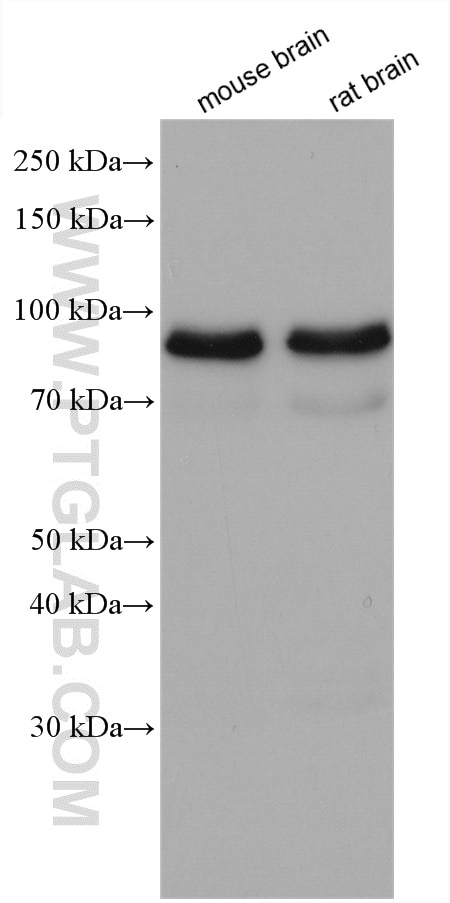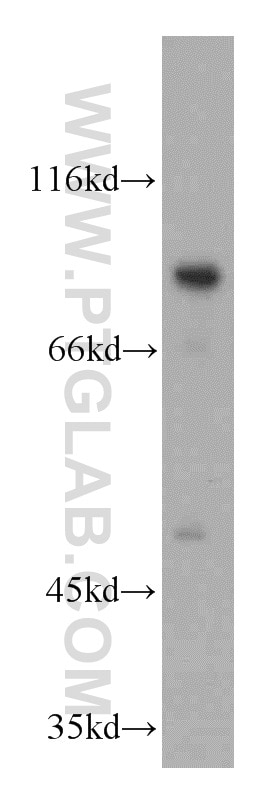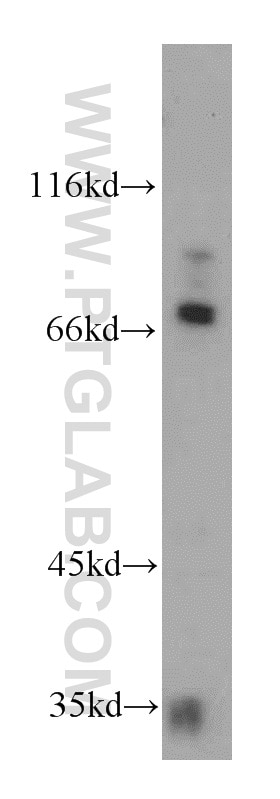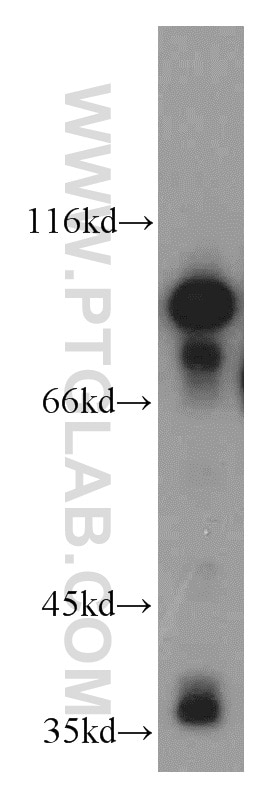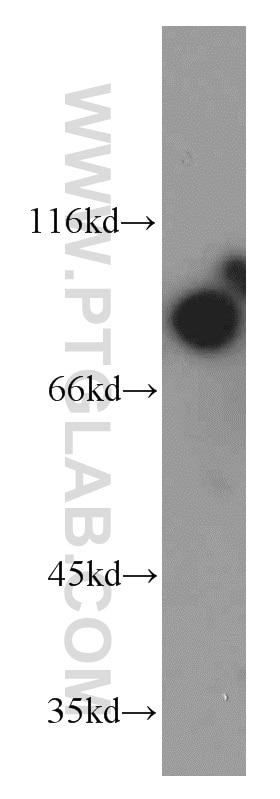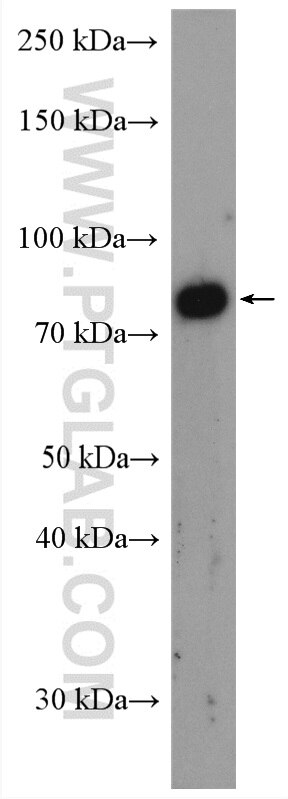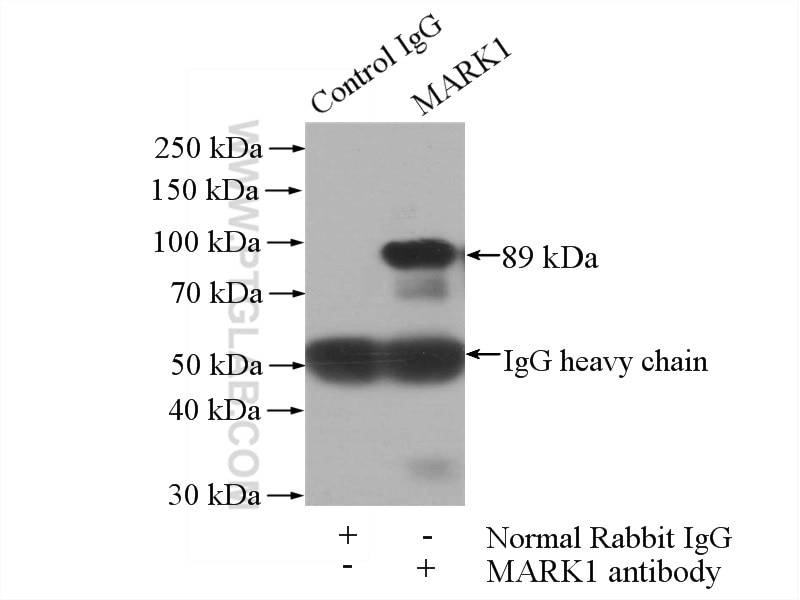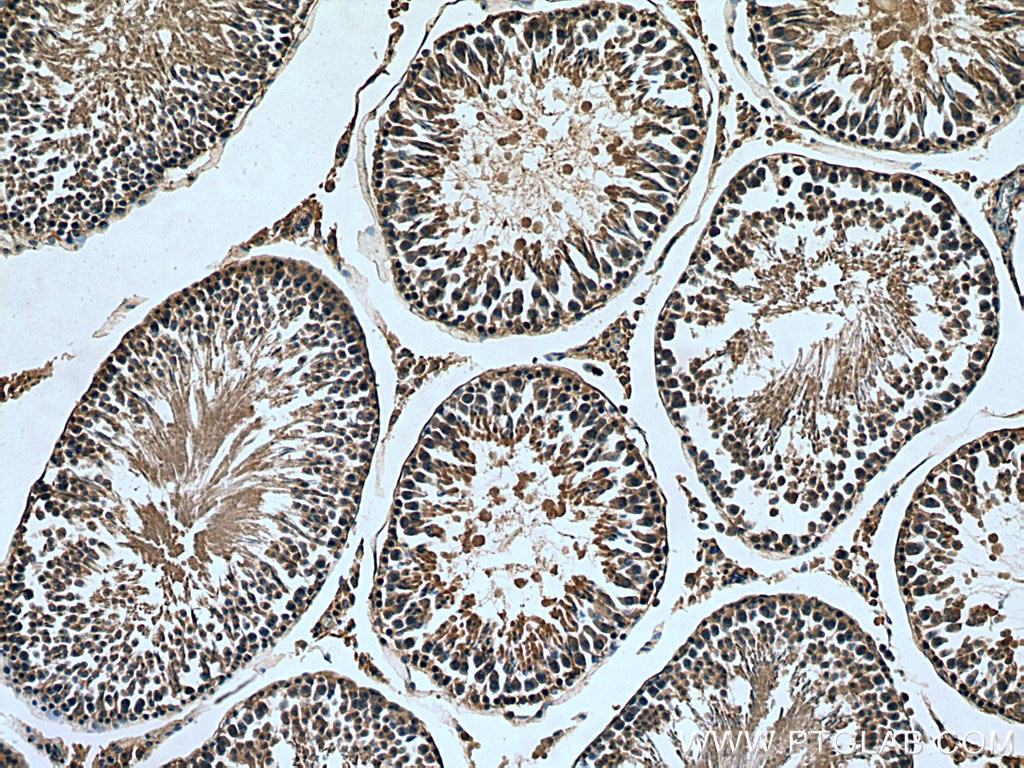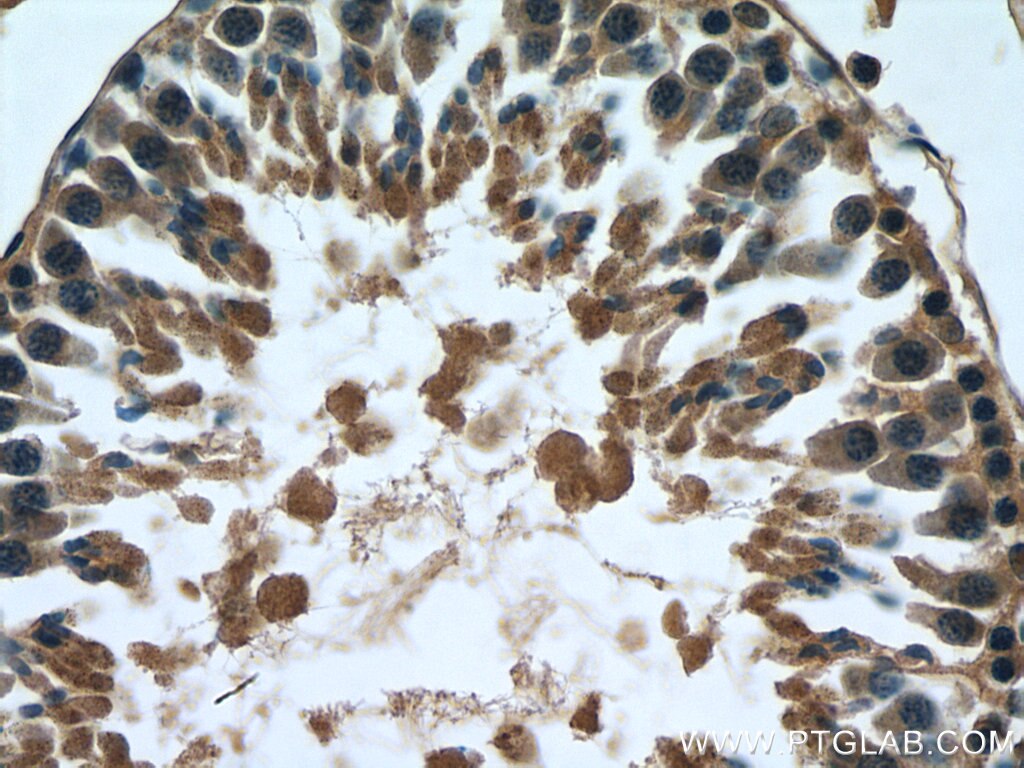Tested Applications
| Positive WB detected in | mouse brain tissue, HeLa cells, SH-SY5Y cells, mouse kidney tissue, rat brain tissue |
| Positive IP detected in | mouse brain tissue |
| Positive IHC detected in | rat testis tissue Note: suggested antigen retrieval with TE buffer pH 9.0; (*) Alternatively, antigen retrieval may be performed with citrate buffer pH 6.0 |
Recommended dilution
| Application | Dilution |
|---|---|
| Western Blot (WB) | WB : 1:1000-1:6000 |
| Immunoprecipitation (IP) | IP : 0.5-4.0 ug for 1.0-3.0 mg of total protein lysate |
| Immunohistochemistry (IHC) | IHC : 1:50-1:500 |
| It is recommended that this reagent should be titrated in each testing system to obtain optimal results. | |
| Sample-dependent, Check data in validation data gallery. | |
Published Applications
| KD/KO | See 4 publications below |
| WB | See 9 publications below |
| IP | See 2 publications below |
Product Information
21552-1-AP targets MARK1 in WB, IHC, IP, ELISA applications and shows reactivity with human, mouse, rat samples.
| Tested Reactivity | human, mouse, rat |
| Cited Reactivity | human, mouse, rat |
| Host / Isotype | Rabbit / IgG |
| Class | Polyclonal |
| Type | Antibody |
| Immunogen | MARK1 fusion protein Ag16225 Predict reactive species |
| Full Name | MAP/microtubule affinity-regulating kinase 1 |
| Calculated Molecular Weight | 795 aa, 89 kDa |
| Observed Molecular Weight | 85-89 kDa, 72 kDa |
| GenBank Accession Number | BC113869 |
| Gene Symbol | MARK1 |
| Gene ID (NCBI) | 4139 |
| RRID | AB_10732726 |
| Conjugate | Unconjugated |
| Form | Liquid |
| Purification Method | Antigen affinity purification |
| UNIPROT ID | Q9P0L2 |
| Storage Buffer | PBS with 0.02% sodium azide and 50% glycerol pH 7.3. |
| Storage Conditions | Store at -20°C. Stable for one year after shipment. Aliquoting is unnecessary for -20oC storage. 20ul sizes contain 0.1% BSA. |
Background Information
MARK1, also named as MAP-microtubule affinity regulating kinase 1, which form a subfamily of the calcium/calmodulin-dependent protein kinase (CAMP) group of kinases(PMID: 22670221). It is involved in cell polarity by phosphorylating the microtubule-associated proteins MAP2, MAP4 and MAPT/TAU at KXGS motifs, causing detachment from microtubules, and their disassembly. MARK1 also act as a regulator of the neuronal migration and Wnt signaling pathway. It has 3 isoforms which molecular weight is 89,84,72 kDa. This antibody may detect all of the isoforms.
Protocols
| Product Specific Protocols | |
|---|---|
| WB protocol for MARK1 antibody 21552-1-AP | Download protocol |
| IHC protocol for MARK1 antibody 21552-1-AP | Download protocol |
| IP protocol for MARK1 antibody 21552-1-AP | Download protocol |
| Standard Protocols | |
|---|---|
| Click here to view our Standard Protocols |
Publications
| Species | Application | Title |
|---|---|---|
Mol Cell An AMPK-Independent Signaling Pathway Downstream of the LKB1 Tumor Suppressor Controls Snail1 and Metastatic Potential.
| ||
Nat Commun TNK1 is a ubiquitin-binding and 14-3-3-regulated kinase that can be targeted to block tumor growth.
| ||
Cell Rep DIXDC1 Phosphorylation and Control of Dendritic Morphology Are Impaired by Rare Genetic Variants. | ||
Cell Commun Signal Doublecortin undergo nucleocytoplasmic transport via the RanGTPase signaling to promote glioma progression. | ||
J Biol Chem Postsynaptic density 95 (PSD-95) serine 561 phosphorylation regulates a conformational switch and bidirectional dendritic spine structural plasticity. | ||
PLoS One MARK/Par1 Kinase Is Activated Downstream of NMDA Receptors through a PKA-Dependent Mechanism. |
Reviews
The reviews below have been submitted by verified Proteintech customers who received an incentive for providing their feedback.
FH Manish (Verified Customer) (06-09-2020) | The antibody works really well. We dilute it 10 fold and still get strong bands on western blots.
|
